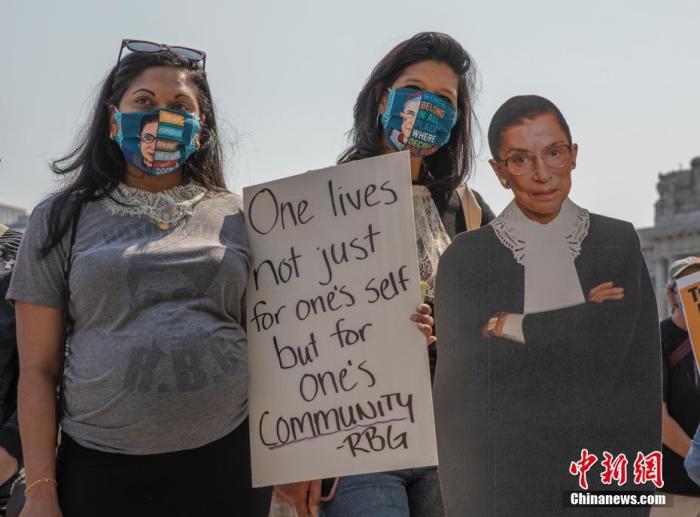China News Service, September 27, reported that on the 26th local time, US President Trump officially nominated conservative judge Amy Coney Barrett to replace Ginsberg as Supreme Court justice.
Although Democrats objected to this, because only a few Republican congressmen opposed voting on nominees before the election, the candidates for the new justice passed the Senate, which was almost a foregone conclusion.
Data map: US President Trump.
Trump's nomination is another bipartisan dispute
There is no suspense when the new judge can pass the Senate
When Trump announced the official nomination of Barrett, a conservative judge, he called it a "really very proud moment" and called Barrett a woman with "excellent intelligence" and "loyalty to the Constitution."
The majority of Republican lawmakers in the United States also welcomed Trump's nomination.
The Senate Majority Leader and Republican McConnell is a strong supporter of Barrett. He said in a statement on the 26th, "Barrett is a very impressive jurist...", and It is clear that the Senate will vote on Trump's choice.
According to a possible timetable circulated in the Senate on the 26th, it is confirmed that Barrett’s hearing may begin on October 12 and a public statement will be issued in the Senate Judiciary Committee.
There will be a round of questioning on October 13th and October 14th, and there will be a closed-door meeting of external witnesses on October 15th.
According to previous analysis, only a few Republican congressmen oppose voting on nominees before the election, and it is almost a foregone conclusion that the candidates for the new judge will pass the Senate.
The US "Washington Post" stated that while Republicans welcomed Barrett, Democrats regarded his nomination as a "threat" to the Affordable Care Act and medical insurance that covers millions of Americans.
Some Democrats also believe that Trump's appointment of Barrett is "a direct denial of Ginsberg's legacy."
For a long time, Ginsberg has been committed to advancing issues such as women and minority rights and is a liberal justice.
Data map: On September 20, local time, more than 100 citizens of San Francisco, California, USA held a rally in front of the City Hall to mourn Ruth Bud Ginsberg, the second female justice in the history of the US Supreme Court.
Ginsburg died on September 18 at his home in Washington, DC, at the age of 87.
Photo by China News Agency reporter Liu Guanguan
Will the conservative advantage of the US Supreme Court be consolidated?
Poll: Most Americans disagree with pre-election appointments
Barrett, 48, was an assistant to the late Justice Antonin Scalia. She was conservative on issues such as gun possession, immigration and abortion.
In 2017, Barrett was nominated by Trump as a judge of the Seventh Circuit Court of Appeals.
Previous analysis stated that Trump has successfully appointed two conservative justices in the Supreme Court during his tenure. If the nomination is passed again, the conservative and liberal camps of the Supreme Court will be 6 to 3, further consolidating the former’s advantage. .
A poll conducted by the US "Politician" magazine has shown that most American voters believe that the winner of the November presidential election should appoint the Supreme Court vacancy, and only 37% believe that Trump should appoint the justices before the election. .

